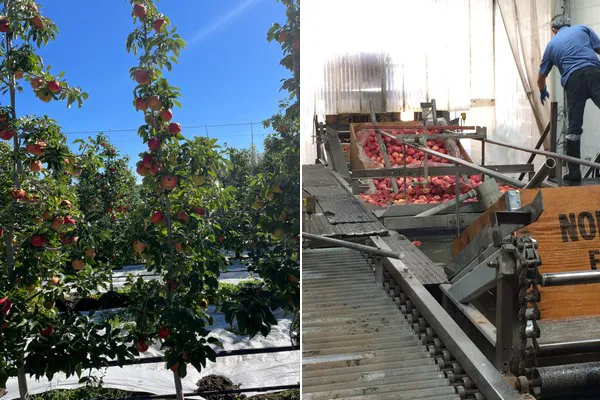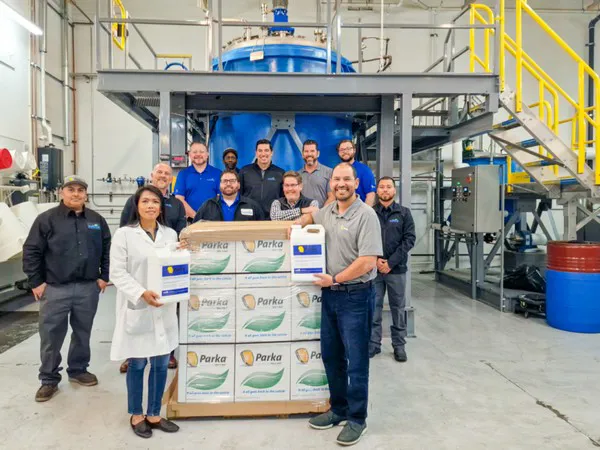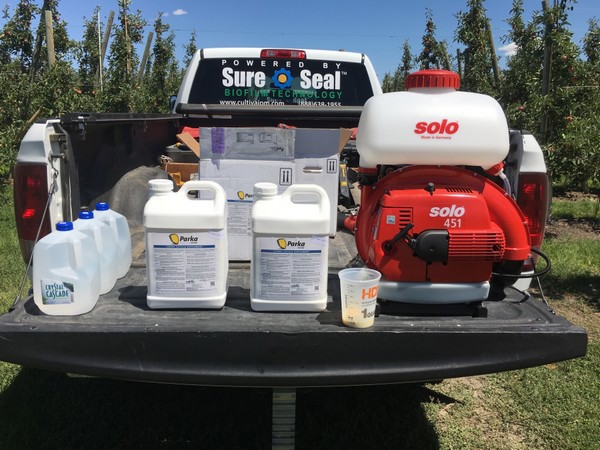“The role of the cuticle, whether it’s on the fruit, seeds or foliage, is very important for plant health and leads to healthy plants and high-quality fruit. However, the cuticle can be compromised by biotic and abiotic stresses,” says Luis Hernandez, CEO at Cultiva.
Cultiva is a US company that has spent the past decade revolutionizing cuticle care for agricultural crops including fresh produce. According to the company’s website, Parka® as is the flagship product and was released in 2013, based on a proprietary technology, called SureSeal™.
SureSeal technology was first developed by researchers at Oregon State University who aimed to create a chemistry that would mimic and supplement the cuticle of the plant. Cultiva eventually licensed SureSeal in 2012 and has since crafted its market strategy with SureSeal as the driving technology. In 2013, the company launched Parka and initially rolled it out to the cherry market. Since then, the company has earned a 70% market share on in the cherry cracking market in the Pacific Northwest of the United States. Cultiva has also been working diligently in the past ten years to establish Parka’s footprint on a variety of high-value crops such as citrus, grapes, apples, tree nuts, avocados, etc.

Triple mode of action
As Luis explains, Parka increases a plant’s overall tolerance to stress through three modes of action. Firstly, Parka improves the mechanical properties of the fruit thus preventing physiological disorders like cracking. Next, Parka® enhances the stability of tissue cell membranes, reducing the incidence of sunburn. Finally, Parka enhances photosynthetic activity, improving fruit quality and yield.
“The three modes of action help the plant increase its overall tolerance to stress. The exact results depend on the region but on average, Parka reduces cracking and sunburn in cherries by 40 percent which is backed by 15+ trials,” says Thiago Moraes, North America Sales manager.
For fruit protection, Parka is most effective when used in a program-based application beginning early in the development of fruit, when the fruit is small and developing its cuticle. This prepares the fruit for the rapid expansion that occurs under warm summer temperatures. For foliage, the protection of the cuticle against extreme temperatures and radiation allows the plant to continue photosynthesizing efficiently, thus optimizing plant growth and the delivery of sugars to the fruit.
“If using wax-based products, the wax would still crack as the fruit expands. With Parka, the coating moves with the plant to ensure maximum coverage. Parka is also food-safe, so it can be applied the same of harvest and continue seeing effects during storage,” Thiago explains.

Different geography, different goals
How Parka is used depends entirely on the crop in question as well the geography. Different regions produce different varieties, all having their own challenges. Cultiva works with growers to develop trials to compare Parka to alternatives, and to determine the best use to meet their needs.
Roughly 65 percent of Cultiva’s business is conducted in North America and the rest is international. Cherries represent a significant part of the company’s portfolio, especially around the Chinese New Year when cherries are shipped to China en masse and are given as gifts. In this case, growers can apply Parka before harvesting to reduce shrinkage during transportation.
Cultiva is increasingly present in Chile, Argentina, Australia, Italy, Spain and Canada. Other markets under development include Brazil, Mexico, South Africa, and Peru.
Cultiva is exploring new avenues including greenhouse and vertical farming applications. While the greenhouse environment is controlled to limit plant stress, plants inevitably experience stress as a result of temperature fluctuations and fruit cracking is not uncommon. Greenhouse growers may thus have another tool available in Parka for combatting cracking and heat stress.

 For more information:
For more information:
Cultiva
www.cultiva.com
sales@cultiva.com
